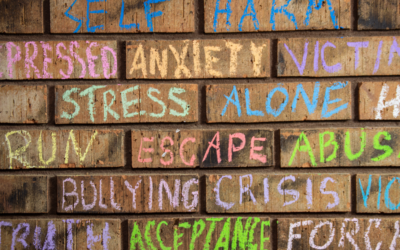Mindfulness, a practice that has been around for centuries, has gained significant attention for its positive impact on mental health. With the ability to manage stress and anxiety and build mental resilience, mindfulness is a powerful tool that can help us lead a happier and healthier life. Let’s explore its history, benefits, and practical applications together and journey towards greater well-being.
History of Mindfulness
Mindfulness is a journey that involves ancient meditation practices deeply rooted in Buddhism. It is a practice of being present and aware of one’s thoughts, emotions, and surroundings while in the moment. The essence of mindfulness lies in the ability to stay connected to the present moment without judgment or distraction.
The practice of mindfulness has come a long way from its religious origins. Today, it is a secular practice that anyone can use to improve their mental well-being, regardless of their beliefs. Mindfulness has become a part of everyday life for many people, and it’s a universal tool that can help us all feel better.
Usefulness of Mindfulness
Mindfulness is a powerful practice that can bring positive change to our lives. While it has roots in ancient traditions, modern science has also shown its effectiveness in improving our mental health. Many studies have examined the benefits of mindfulness, and the evidence is clear: it can help us feel better and be more at peace with ourselves.
Psychological and Emotional Stress
Research consistently points to the benefits of regular mindfulness practice, showcasing its ability to reduce stress, anxiety, and symptoms of depression effectively. Research published in the Journal of Psychosomatic Research highlighted the positive outcomes of mindfulness interventions in reducing psychological distress. These findings highlight the practical relevance of incorporating mindfulness into mental health strategies.
Focus and Attention and Mental Flexibility
In addition to reducing stress, mindfulness can also enhance our brain’s abilities. Research has shown that being mindful can improve our attention, focus, and ability to think flexibly. We can adjust our thinking and behavior to adapt to different situations when we have cognitive flexibility. It’s like being able to switch between tasks and perspectives smoothly and come up with creative solutions to problems. This shows how practicing mindfulness can positively impact our overall mental well-being.
We can see how ancient wisdom and modern science come together as we explore the connection between being mindful and having good mental health. Mindfulness used to be something only practiced in certain cultures, but now research shows how it can help anyone develop a strong and healthy mind. It’s a powerful tool for anyone looking to improve their mental well-being and live a more fulfilling life.
Impact on Mental Health
Exploring the incredible benefits of mindfulness on mental health can lead to a journey of self-discovery and self-care. Mindfulness is all about being aware of your thoughts and feelings without judging them. This helps you break free from negative thoughts and emotions, allowing you to develop a more positive relationship with your mind. With mindfulness, you can cultivate a healthier and happier lifestyle, leading to a more fulfilling life.
Negative Thoughts
Numerous scientific studies have explored the impact of mindfulness on mental health and its potential to alleviate symptoms of various mental health challenges. Among these studies, one particularly noteworthy investigation was published in the Journal of Abnormal Psychology. This study aimed to examine the effects of mindfulness on habitual negative thought patterns over an extended period of time. The results revealed that consistent mindfulness practice can lead to a significant reduction in symptoms of anxiety, depression, and other mental health conditions. By promoting a greater sense of self-awareness and acceptance, mindfulness helps individuals develop a more positive relationship with their thoughts and emotions. Over time, this can lead to a more positive outlook on life and improved overall mental well-being.
Self-Compassion and Forgiveness
Practicing mindfulness can help us develop a more positive outlook and be kinder to ourselves during tough times. Studies have shown that mindfulness can lead to being more understanding and forgiving towards ourselves and feeling more connected to others around us. When we practice self-compassion, we extend kindness and care towards ourselves, especially when things are hard or we make mistakes. This means treating ourselves with the same level of warmth and understanding as we would offer to a friend in need. It’s important to note that self-compassion is not the same as self-esteem, which is more about evaluating our own worth. Instead, it involves accepting our flaws and imperfections without judgment. By cultivating self-compassion, we can develop greater empathy and resilience, which can help us navigate life’s challenges.
Stress and Cortisol Levels
The Journal of Psychosomatic Research has published research that suggests that engaging in mindfulness-based activities can significantly lower stress levels for people from all walks of life. The study showed that this practice can act as a powerful tool in managing stress by allowing individuals to hit the pause button and mindfully observe their thoughts and feelings without being overly reactive or judgmental.
Moreover, another study published in the journal “Mindfulness” showed that mindfulness training is associated with lower cortisol levels, one of the major stress hormones. Cortisol is released in response to stress, and high levels of this hormone can negatively affect the body and mind. By reducing cortisol levels, mindfulness training can help individuals manage their stress levels better and improve their overall well-being.
Practical Application of Mindfulness in Daily Life
Now, let’s explore how we can incorporate mindfulness into our daily lives, even with busy schedules. Here are examples of both short five-minute practices and longer sessions:
Five-Minute Mindfulness Practices
Focused Breathing
It is highly recommended that you take a five-minute break to focus on your breath. Find a quiet and comfortable place to sit or lie down. Inhale deeply through your nose, counting to four, hold your breath for four counts, and exhale slowly through your mouth for four counts. Repeat this cycle, bringing your attention back whenever your mind wanders. As you inhale, imagine fresh air filling your lungs; as you exhale, visualize yourself expelling stress and tension from your body. This simple breathing exercise can help you feel calmer and centered, and improve your overall well-being.
Body Scan
Take a moment to sit or lie down comfortably and close your eyes. Begin by focusing your attention on your breath, taking a few deep breaths in and out. Then, start to mentally scan your body from the top of your head all the way down to your toes. As you do this, pay close attention to any areas of tension or discomfort that you may be feeling. Take a few deep breaths into these areas, imagining the breath flowing into these parts of your body and releasing any tightness or discomfort. Take your time and continue scanning your body until you’ve covered every part of it. Remember to breathe deeply and stay present in the moment.
Gratitude Pause
Take a moment to pause and reflect on what you are grateful for in your life right now. These could be anything from the pleasant feeling of the sun on your skin, the support of a close friend, or the simple beauty of the surroundings you find yourself in. Acknowledging and appreciating these aspects of your life may make you feel more content and optimistic about the present moment.
Longer Mindfulness Practices
Mindful Walking
As you take a leisurely walk, focus your attention on the soles of your feet as they make contact with the ground. Notice the different sensations you experience with each step – the pressure, texture, and temperature. Pay attention to the movement of your legs, hips, and arms as you walk. Take in your surroundings using all your senses – observe the colors and shapes of the trees and flowers, listen to the birds singing and the rustling of leaves, and breathe in the fragrant scents of nature. Try to avoid judging your experience and, instead, allow yourself to be present in the moment and appreciate the beauty around you.
Guided Meditation
One way to enhance your meditation practice is using guided meditation apps or recordings for longer sessions. These resources offer a structured approach to meditation, often incorporating specific techniques such as breath work, body awareness, visualization, and cultivating a compassionate mindset. With the guidance of an experienced teacher, you can deepen your practice and develop a greater sense of focus and relaxation. These resources are beneficial for beginners who may struggle to maintain focus during longer meditation sessions.
Mindful Eating
Taking a few minutes from your busy schedule and dedicating them to eating your meal can significantly impact your physical and mental well-being. Mindful eating involves setting aside 15-20 minutes to eat without distractions. During this time, focus on your food and engage your senses. Observe the colors, textures, and aromas of your food. Take small bites and savor each one, paying attention to the taste and texture. This practice helps you develop a deeper appreciation for your food and cultivate a mindful relationship with it. By making mindful eating a habit, you can improve digestion, manage weight, and reduce stress levels.
Conclusion
With its rich history and proven efficacy, mindfulness is a valuable tool for enhancing mental well-being. We can cultivate a resilient and compassionate mindset by incorporating brief mindfulness practices into our daily routines and dedicating time to longer sessions. In the journey towards mental health, mindfulness serves as a beacon, guiding us back to the present moment and empowering us to face life’s challenges with greater clarity and calm. Happy mindfulness, and here’s to a healthier, more mindful you!










